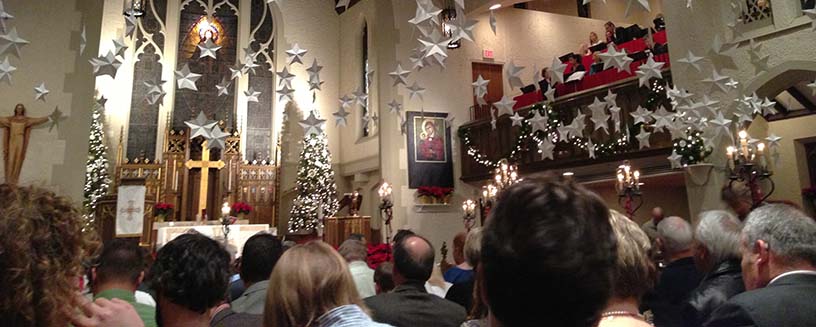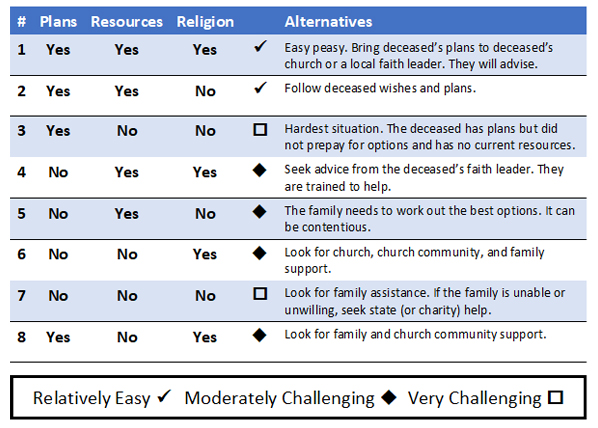Who Will Plan The Funeral
Click here to see what's on this page.
This page examines the question, “Who will plan the funeral?” Funerals have lots of details and are expensive. Seniors who plan generally pre-pay for funeral plans. If a senior doesn’t preplan, someone else will need to do the planning. Regardless, someone needs to plan the funeral.
For complete details, see our Funerals Section. We’ll discuss best practices for funeral planning below.

When a loved one dies, you first need to look for a will and their funeral plans. These will tell you what your loved one wants. This article is about what happens when you can’t find a will or plans.
Funeral Planning When You Can’t Find Plans
When you can’t find a will or funeral plans you may be responsible for planning the funeral. If you find yourself in this position, the information below will help.
Don’t Panic
Read the information in this article. Also, keep in mind it’s unlikely you are in no condition to plan a funeral for a loved one you’ve just lost. Especially when they didn’t leave plans. But help is available.
Social Workers:
If the passing happened in a medical setting (e.g., hospital, hospice, etc.) ask to speak to their social worker. They all have one and are knowledgeable about end-of-life issues. They’ll have lists of religious leaders willing to help, funeral home directors, cemeteries, crematoriums, and counselors.
Religious Leaders:
Call the local priest or pastor if you or the deceased are religious. It doesn’t matter if you’re from a different city or if the deceased hasn’t recently been to Church. You can even look up the name of a local Church or Synagogue and call. Explain your situation; in most cases, they will help or refer you to someone who can.
Local Funeral Directors:
Another option is to call a local funeral director and ask for help. That’s what they do. In other words, they’ll know the local religious leaders, the local cemeteries, and how to create funerals for every budget. If they can’t help, they usually can refer to someone who can.
Types of Funerals
There are a variety of different types of funerals. They are listed below.
Tradiaional Funeral Service
A traditional funeral service involves (1) a body (complete or ashes), (2) service at a church, funeral home, or cemetery, and (3) a burial.
Characteristics of a traditional funeral include:
Graveside Service
Protestants and Catholics call a graveside service, a committal service because the deceased loved ones accompany the deceased to their final resting place to await the Lord’s call to resurrection. Most religions have a version of this graveside service.
Close family and friends participate in the burial process with prayers and other rituals (placing stones on the gravesite, shoveling dirt into the grave, placing flowers near the grave, etc.). A graveside service may be the only service the family selects. Or it can be a component in the overall funeral process.
Memorial Service
There are circumstances involving timing, the availability of the body, and the availability of family members that make a traditional funeral or a graveside service undesirable. A memorial service is like a traditional funeral without the body.
Not every religion will accommodate a memorial service. If you want to explore a memorial service at a Church or Synagogue, it’s wise to immediately contact them to explore the options they’re willing to accommodate.
Celebration of Life Funeral
A celebration of life is a non-religious event: often held at venues like hotels, senior living facilities, family homes, and parks. They can be similar to an actual funeral but are generally informal events that celebrate a deceased’s life. Attendees talk about the deceased, share their memories, and present biographical facts often unknown to the general community or extended family. The body is often not present.
Sometimes a celebration of life is held in addition to a traditional burial. It can allow friends and family unable to attend the traditional burial, to attend this service.
Direct Burial Funeral
Direct burials usually skip the traditional service. Instead, there is a simple graveside service or none at all. A memorial service or a celebration of life often follows on a date convenient for the family. There may be religious, financial, or other reasons that a family member simply chooses to bury the loved one. It is a common option during a pandemic.
Direct Cremation Funeral
Cremation has become the fastest-growing way to handle the body. Over 50% of families now choose cremation. In a direct cremation, the deceased is taken from the morgue to the crematorium, where they are cremated. The crematorium gives the ashes to the family. Many choose direct cremation when managing a death of a loved one where there are no plans, resources, or strong religious beliefs. The family can minimize costs, time, and effort by combining direct cremation with a small in-home service or no service at all.
Where To Start Without Funeral Plans
The chart below lists three areas: plans, resources, and religion. Depending on what’s available relative to the deceased’s preferences, it gives you a starting point.

Additional Resources
Catholic Catechism – Funerals
Catholic Funerals – Planning Guide
Cremation Resources – Tulip
Solidified Remains – Ashes to Stones